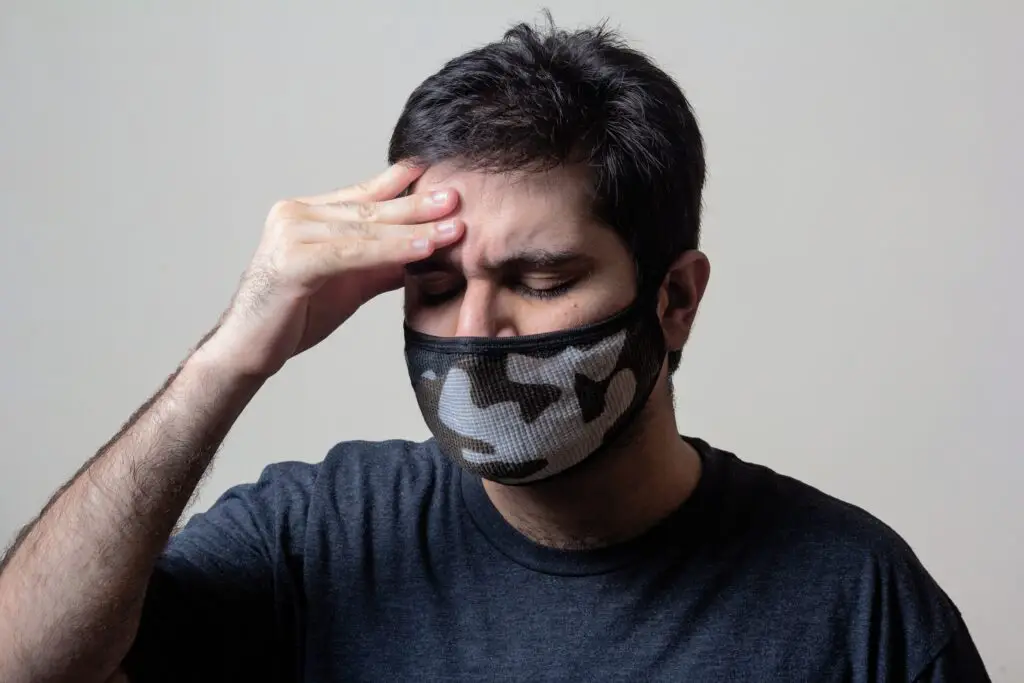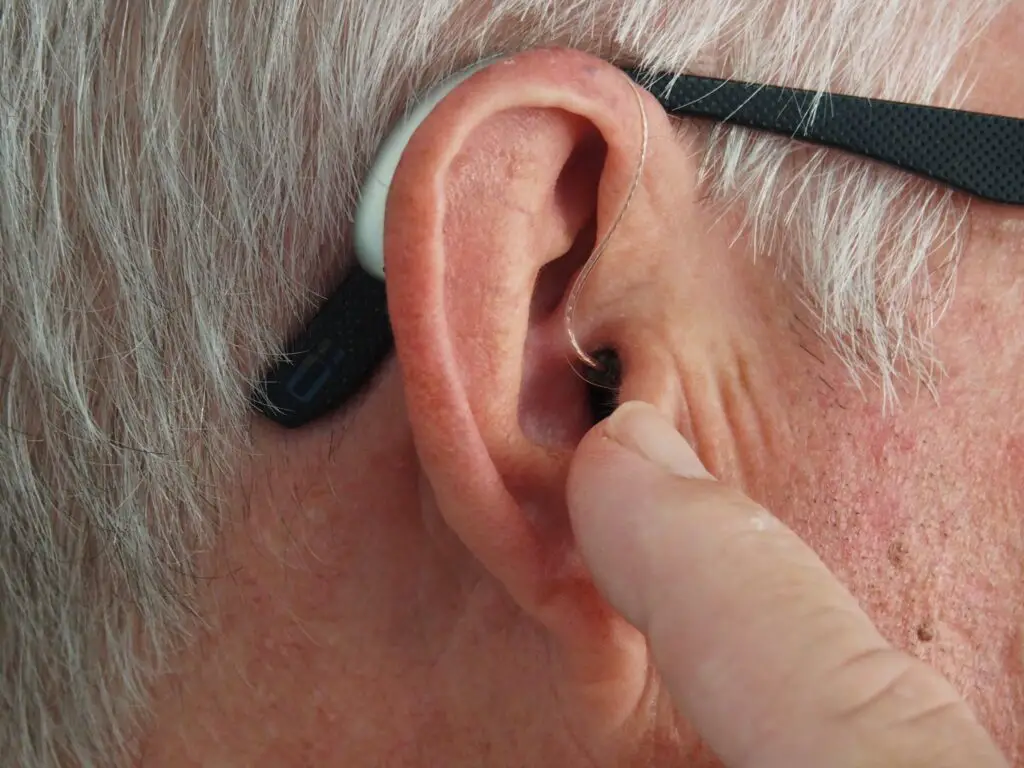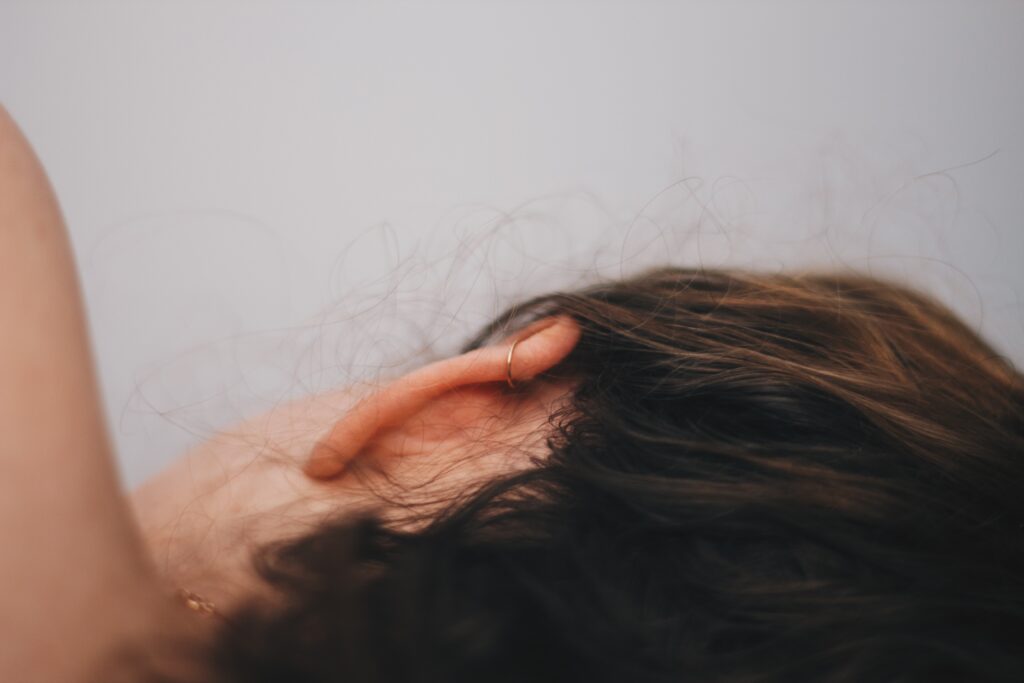As a BetterHelp affiliate, we receive compensation from BetterHelp if you purchase products or services through the links provided
Sleeping with an ear infection can be difficult. The pain and pressure make it hard to get comfortable and fall asleep. In this article, we will go over some tips for sleeping with an ear infection. We will also talk about some of the best ways to relieve the pain and pressure that comes with this type of infection.
Causes Of Ear Infections
There are many different causes of ear infections. Some of the most common include:
Allergies:
Allergies can cause inflammation in the nose and throat, leading to an ear infection.
Cold:
A cold can cause inflammation in the Eustachian tube, which is responsible for equalizing pressure in the middle ear. When this happens, fluid can build up in the middle ear and lead to an infection.
Flu:
The flu can also cause inflammation in the Eustachian tube, leading to an ear infection.

Other Conditions Related To Ear Infections
Some other conditions related to ear infections are as follows:
Acute Sinusitis:
This is an inflammation of the sinuses that can lead to an ear infection.
Chronic Otitis Media:
This is a condition in which there is persistent inflammation in the middle ear. It can also lead to an ear infection.
Swimmer’s Ear:
This is an outer ear canal infection that can lead to an ear infection.
Treatment Of Ear Infections
There are many different treatments for ear infections. Some of the most common include:
Antibiotics:
Antibiotics are often used to treat bacterial infections, such as ear infections. They can be taken orally or applied directly to the affected area.
Pain Relief:
Pain relievers, such as ibuprofen or acetaminophen, can relieve the pain and discomfort associated with ear infections.
Ear Drops:
Ear drops are often used to treat ear infections. They can help to reduce inflammation and pain.
Surgery:
In some cases, surgery may be necessary to treat an ear infection. This is usually only the case if other treatments have failed.

Prevention Of Ear Infections
There are many different ways to prevent ear infections. Some of the most common include:
Washing Hands Regularly:
Washing hands regularly is one of the best ways to prevent infections, including ear infections.
Avoiding Exposure To Colds And Flu:
Avoiding exposure to colds and flu is another excellent way to prevent ear infections.
Avoiding Exposure To Allergens:
If you are allergic to something, it is essential to avoid exposure. This can help to prevent an ear infection.
Risk factors Of Ear Infection
There are many different risk factors for ear infections. Some of the most common include:
Children:
Children are more likely to get ear infections than adults. This is because they have smaller Eustachian tubes, which can become blocked more easily.
Adults:
While adults are less likely to get ear infections than children, they are still at risk. This is because the Eustachian tube can become blocked as we age.
People With Allergies:
People with allergies are more likely to get ear infections than those without allergies. This is because allergies can cause inflammation in the nose and throat, leading to an ear infection.
People With Colds Or Flu:
People with colds or flu are more likely to get ear infections than those without these conditions. This is because colds and flu can cause inflammation in the Eustachian tube, leading to an ear infection.
Sleeping with an ear infection can be difficult, but there are some things that you can do to make it easier.
Signs And Symptoms Of Ear Infections
If pus or other discharge is coming from the affected ear, this can be a sign of an ear infection. There are many different signs and symptoms of ear infections. Some of the most common include:
- Pain
- Fever
- Earache
- Discharge
- Nausea
- Vomiting
- Dizziness
Ear Infection Sleeping Tips
If you have an ear infection, there are some things that you can do to make it easier to sleep. First, prop up your head with pillows, so your affected ear is above your head. This will help to drain the fluid from your middle ear. You can also take pain relief medication and use ear drops to help reduce the pain and discomfort. Finally, avoid lying on your side with the affected ear down. This can make the pain worse.

Choose A Pillow With Memory Foam To Sleep At The Correct Height
Memory foam pillows are an excellent option for people with ear infections because they provide the perfect amount of support and height. They also contour your head and neck, which can help to reduce pain and discomfort.
Sleeping On Your Back Is The Best Position If You Have An Ear Infection
Sleeping on your back is often the best when you have a middle ear infection. This is because it helps to keep your head elevated and prevents fluid from pooling in your middle ear. You could also put a pillow between your knees to relieve pressure on your lower back. Also, try to sleep on the side of the healthy ear.
Apply A Warm Compress To The Inner Ear Infection Pain
If you have pain in your ear, you may want to try applying a warm compress. This can help to reduce pain and inflammation. Simply wet a washcloth with warm water and apply it to the affected ear for 15 minutes. Repeat this several times per day as needed.
Allow Pressure To Be Released During The Day By Elevating Your Head
If you have an infected ear, it is essential to allow pressure to release throughout the day. This can be done by elevating your head with pillows when you are sitting or lying down. You should also avoid straining or blowing your nose too hard.
Exercise Routines To Fall Asleep Faster
There are many different exercises that you can do to help you fall asleep faster. Some of the most effective include:
- Yoga
- Stretching
- Breathing exercises
Conclusion
If you follow these tips, you should be able to get a better night’s sleep despite having an ear infection. Remember to see your doctor if the pain does not disappear or if you have any other concerns.
Articles You Might Enjoy Reading
Best Melatonin for Sleep – Complete Reviews with Comparison
Do Color Changing Stress Balls Work?
The Difference Between Anxiety And Stress
How To Sleep When Stressed and Anxious
Short Term Stress
- Left Arm Pain and Anxiety: Understanding the Relationship - November 23, 2023
- Anxiety Paralysis: Coping with Overwhelming Stress - November 23, 2023
- Anxious vs. Nervous: Differentiating Emotions and Responses - November 15, 2023
This site contains affiliate links to products. We will receive a commission for purchases made through these links.



